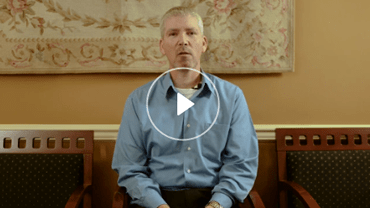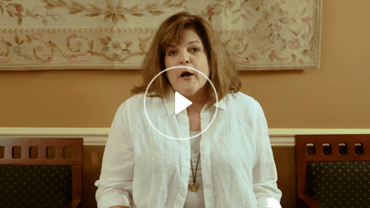What is a TAP Appliance? How Can it Help with Sleep Apnea?
Its full name is the Thornton Adjustable Positioner, but it goes by the name TAP. It’s a two-piece jaw repositioning device designed to treat snoring and sleep apnea. The TAP appliance is made up of a mandibular and maxillary component which are connected by a hinge and pivot point that are fixed during sleep.
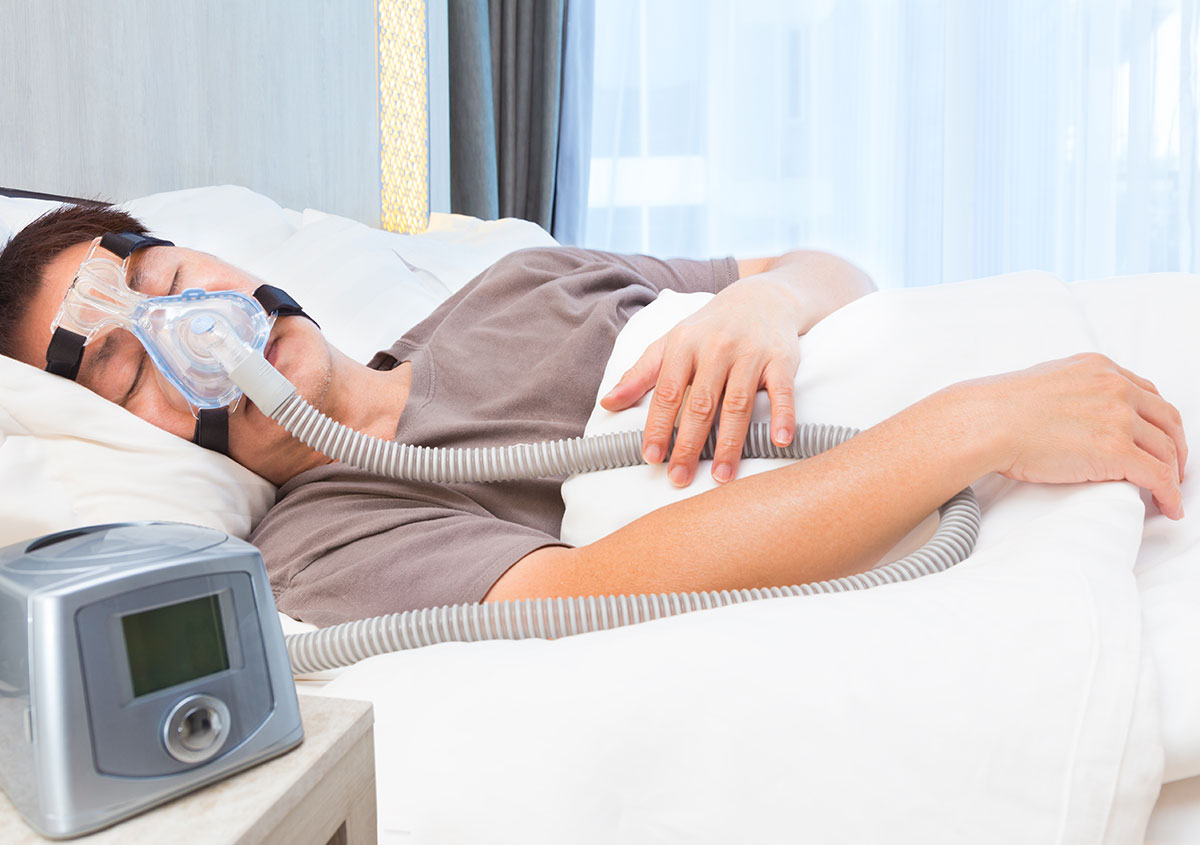
This appliance basically holds the lower jaw forward and slightly open, which pulls the tongue forward. This positioning keeps the airway open between the back of the tongue, soft tissues of the throat and the uvula.
The TAP appliance has been shown to improve nighttime breathing and eliminate snoring for more than 95% of patients. It has also been shown to be an effective treatment for sleep apnea, reducing the occurrence of associated health risks without the need for medication or surgery. A TAP device can also effectively substitute the use of a Continuous Positive Air Pressure (CPAP) machine.
What is Sleep Apnea?
More than 18 million adults in America suffer from sleep apnea. Though it’s a common problem among overweight and obese patients, it can affect anyone.
For patients with Obstructive Sleep Apnea (OSA), the tongue and soft tissues tend to fall backward and collapse on each other blocking the patient’s breathing while sleeping. If the airway is not totally blocked off, the small, uneven amount of air that does pass is what causes the loud obnoxious snoring commonly associated with sleep apnea.
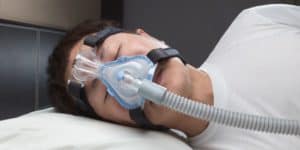
If the airway is totally blocked and sufficient air is not getting to the lungs, the patient stops breathing until the brain senses CO2 building up. The brain then kicks the body into action by causing an abrupt gasping of breath in an attempt to get air into the lungs and re-oxygenate the brain. This all process occurs subconsciously without waking the patient and can happen hundreds of times in one night.
The Adverse Effects of Sleep Apnea
There are many adverse health effects of sleep apnea. Because the deep gasping reflex brings the patient out of restful REM sleep, he or she doesn’t get a restful sleep. Some suffering with sleep apnea usually wakes up feeling groggy, sluggish and continues to be tired throughout the day.
Sleep apnea can become a chronic medical issue if it’s not addressed and the severe impact on a patient’s health can even lead to an early death. Chronically sleep-deprived patients are more tired every day, have trouble thinking clearly, are less productive and often make more mistakes, such as car accidents. They are more prone to a whole range of health problems, from depression to pulmonary and cardiovascular pathology.
Treatment for Sleep Apnea
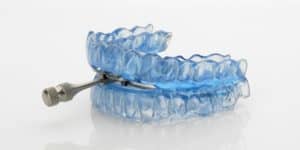
Mild cases of OSA can be treated with a few lifestyle changes, like losing weight, avoiding alcohol and quitting smoking. Mild to moderate OSA can easily be treated with a TAP appliance that keeps the airway open while sleeping. More severe cases may require surgery or an airflow machine known as a CPAP (pictured above), which forces air into the nose to keep the airway open.
My Personal Experience
On a personal note, I have mild sleep apnea with the accompanying snoring. I was amazed 15 years ago when I started wearing a TAP appliance. After just one or two weeks of wearing my TAP device, I was able to dream again. This was something I hadn’t recalled doing for years. I was finally getting enough REM sleep to be fully rested, feel refreshed in the morning and less drowsy during the day.
Since then, I’ve found that wearing simple nasal strips and the TAP appliance (pictured above) is an even more effective treatment for my sleep apnea than the bulky, uncomfortable CPAP machine. Adding the nasal strips to my nightly regimen has made a huge difference. I sleep great and don’t even snore now!
Diagnosing Sleep Apnea
Sleep apnea and especially moderate to severe OSA is most commonly diagnosed by a sleep specialist, who observes the patient in an overnight sleep study. In our area, the University of Pennsylvania has a very good overnight sleep study lab.
Primary care physicians and specialized dentists can evaluate your symptoms and determine if you should see a sleep specialist. If you think you may have sleep apnea, consider keeping a sleep diary to share with your doctor.
Risk factors for OSA include:
- Obesity
- Large neck (greater than 16-17 inches in men and 14.5 inches in women)
- Retrognathia or micrognathia
- Crowded airway
- Enlarged tonsils
- High-arched hard palate
- Nasal deformities/sleep deprivation
Consult a physician if you have a history of:
- Disruptive snoring
- Witnessed apnea or snorts
- Gasping/choking while sleeping
- Excessive daytime sleepiness
- Difficulty with concentration or short-term memory loss
- Excessive night urination
- Difficulty with sleep maintenance
- Restless/unrefreshing sleep
- Decreased libido
- Morning headaches
- Irritability
If you think you could have sleep apnea or if you have been diagnosed with OSA, Briglia Dental Group would be happy to evaluate if a dental appliance is right for you. Our goal is to get you the treatment you need. If we feel you would not benefit from a dental appliance, we will help you find the appropriate studies or treatment outside of our office.
OSA Tests
Still not sure if you have OSA? Use these quick tests to determined the likeliness that you may be suffering from OSA.
Epworth Sleepiness Scale
You can use the following Epworth Sleepiness Scale– a medical exam used to measure excessive daytime sleepiness, which correlates with the severity of sleep apnea in patients.
Use the following scale to choose the most appropriate number for each situation:
0 = would never doze or sleep.
1 = slight chance of dozing or sleeping
2 = moderate chance of dozing or sleeping
3 = high chance of dozing or sleeping
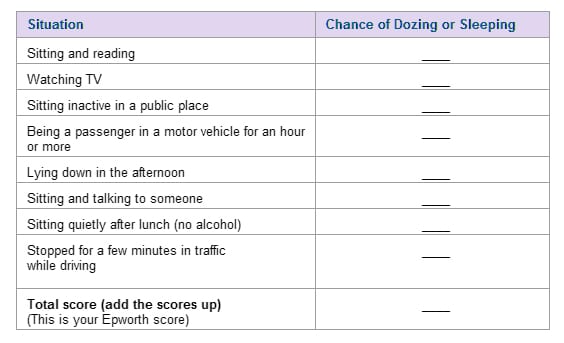
How to interpret your results:
A score of 10 or more is considered Sleepy. A score of 18 or more is Very Sleepy.
Getting Help with Sleep Apnea
If you or a loved one is suffering from the adverse effects of sleep apnea, don’t wait another day to reach out for the help you need. Briglia Dental Group has the experience, knowledge and resources you need to put your sleeping habits back on track. Call us today at (610) 615 0160 to schedule a sleep apnea consultation.
Share this Article
Back to Blog Page




